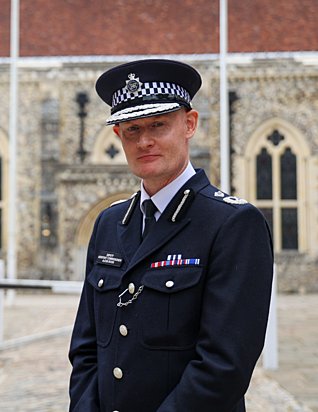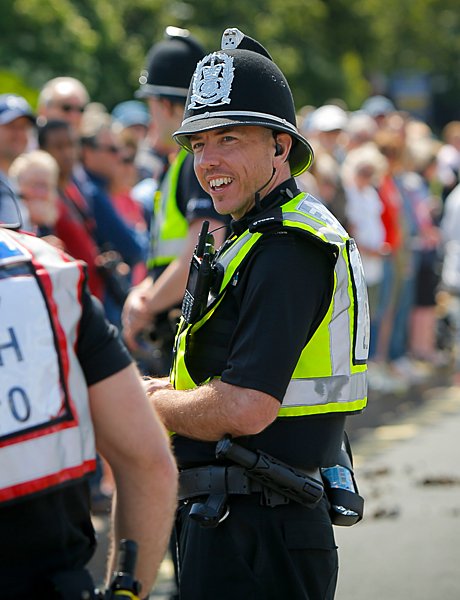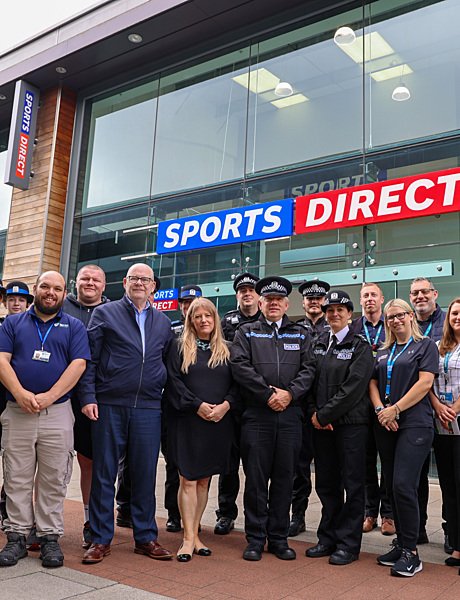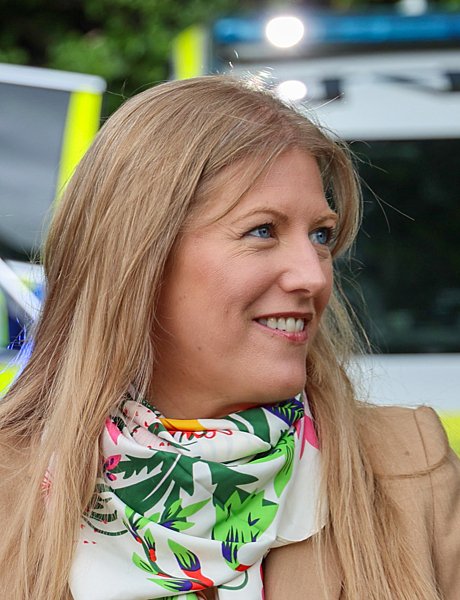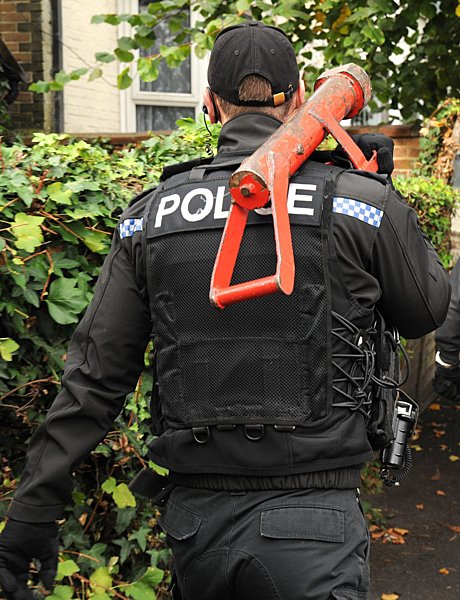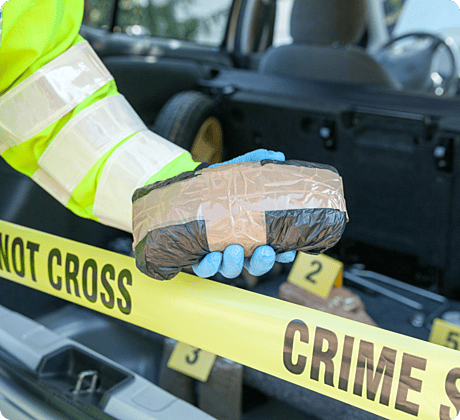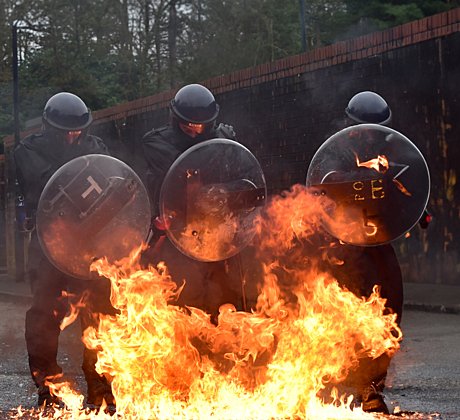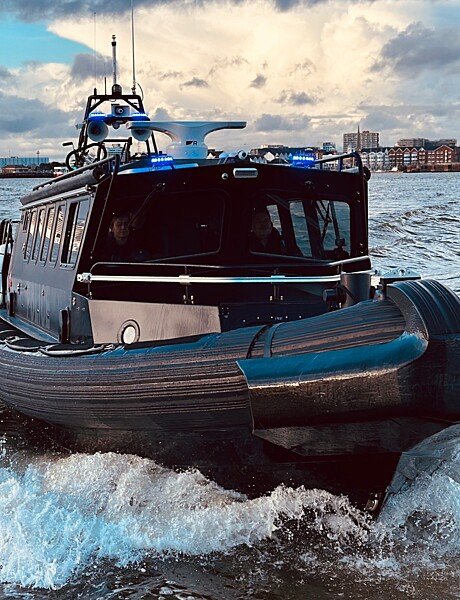
POLICE AND CRIME PLAN
DONNA JONES HAMPSHIRE AND ISLE OF WIGHT 2024 - 2028

Daily Demands
Hampshire & Isle of Wight Constabulary is one of the largest forces outside of the Metropolitan areas. It employs thousands of police officers and staff.
The Constabulary is split into four areas: Western, Eastern, Northern, and the Isle of Wight. Its Roads Policing Unit, Dog Unit, Public Order Unit, Firearms Unit and Marine Unit are part of the Joint Operations Unit (JOU) with Thames Valley Police. To accommodate the workforce, the Constabulary has an extensive network of locations across the two counties.
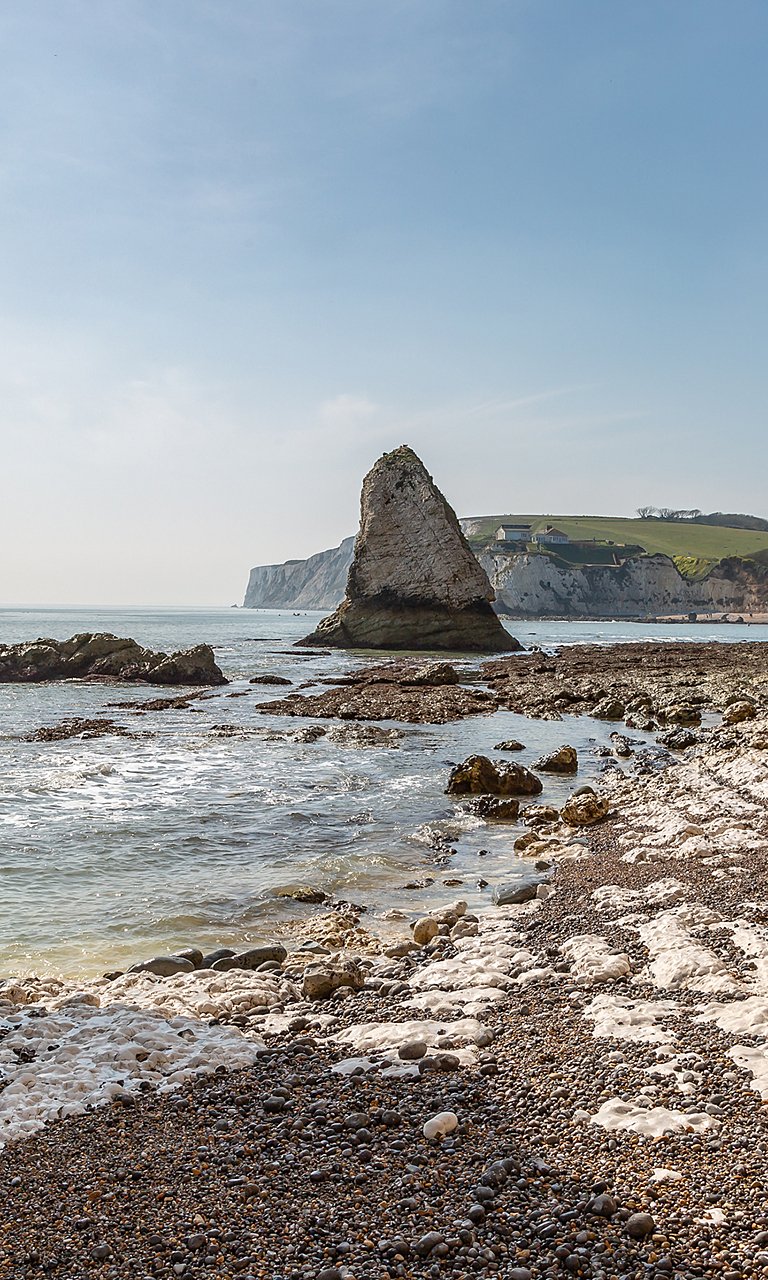
Context
Hampshire is the largest county in South East England and the Isle of Wight is the largest island in England. The largest urban areas in Hampshire are Southampton, Portsmouth and Basingstoke. The majority of residents live in towns and villages across the two counties, although 75% of both counties are rural...
Hampshire and the Isle of Wight (HIOW) is made up of 15 local authorities: one county council, one county unitary authority (Isle of Wight), two unitary city authorities (Portsmouth and Southampton), as well as 11 district councils (Gosport, Fareham, Winchester, Havant, East Hampshire, Hart, Rushmoor, Basingstoke and Deane, Test Valley, Eastleigh, and the New Forest).
Context
Hampshire is the largest county in South East England and the Isle of Wight is the largest island in England. The largest urban areas in Hampshire are Southampton, Portsmouth and Basingstoke. The majority of residents live in towns and villages across the two counties, although 75% of both counties are rural. Portsmouth is the second most densely populated city outside of London. The counties boast two major ports, two national parks, two airports, and the largest oil refinery in the UK. The area is home to the Royal Navy and the British Army, and it features extensive road, rail, and ferry networks. Additionally, the region has four universities and over 280 miles of coastline, making it a hub of education, defence, industry, and transport.
Hampshire and the Isle of Wight (HIOW) is made up of 15 local authorities: one county council, one county unitary authority (Isle of Wight), two unitary city authorities (Portsmouth and Southampton), as well as 11 district councils (Gosport, Fareham, Winchester, Havant, East Hampshire, Hart, Rushmoor, Basingstoke and Deane, Test Valley, Eastleigh, and the New Forest).
Of the total population, 22% are aged between 19 years or younger, 57.1% are aged 20 to 64 years, and 20.8% are aged 65 and over. Over the next decade the number of children aged 0-15 is predicted to decline. The working-age population is predicted to rise as is the over 65 population, with more people falling into the over 85 bracket each year as life expectancy increases over the same period.
Most of the population of HIOW describe themselves as White (92%). The remaining 8%, or 116,100 people, describe themselves as Black, Asian, mixed heritage and other minority ethnic groups. The largest minority populations are in Rushmoor (15.8%), Basingstoke (11%), Eastleigh (10.6%), Southampton (9.3%) and Portsmouth (8.1%). The ethnic breakdown of Hampshire and the Isle of Wight consists of White (92.8%), other ethnic groups (2.8%), Black (1.5%), Asian (1.5%) and mixed race groups make up (1.3%) of the population.
Districts with the highest level of deprivation in HIOW include Portsmouth (Charles Dickens ward), Southampton (Bargate), Isle of Wight (Ryde North East), Havant (Battins) and Gosport (Town). Less deprived districts include Hart (Crookham East), Winchester (Badger Farm and Oliver’s Battery), East Hampshire (Petersfield Heath) and Test Valley (Romsey Tadburn). However, within all districts there is variation in deprivation at ward level. High levels of deprivation often correlate with higher crime rates. Poverty, unemployment, limited access to education, and poor housing are all factors. Lack of opportunities and services can also lead to frustration and social exclusion which contribute to higher levels of crime.
Local Priorities
I have developed this Police and Crime Plan in consultation with over 10,000 members of the public, and a broad range of key partners from Hampshire and the Isle of Wight. These priorities reflect the police and crime issues that matter most to people. Over the next four years these priorities will drive my day to day activity, to deliver the police service residents and visitors not only expect, but deserve. I will do this by supporting Hampshire & Isle of Wight Constabulary’s workforce with sound investment, and challenge its performance to drive continual improvement in these areas.
National Threats
The national strategic policing requirements are set by the Home Secretary. Every Police and Crime Commissioner and Chief Constable must have regard to the Strategic Policing Requirement (SPR). The SPR identifies threats which all police forces must address either locally or by working together. Some of the SPR threats require a cross-border policing response and are of national importance. These significant policing capabilities include national security, public disorder response and cyberattacks, including hostile...
The national strategic policing requirements are set by the Home Secretary. Every Police and Crime Commissioner and Chief Constable must have regard to the Strategic Policing Requirement (SPR). The SPR identifies threats which all police forces must address either locally or by working together. Some of the SPR threats require a cross-border policing response and are of national importance. These significant policing capabilities include national security, public disorder response and cyberattacks, including hostile state threats that require a response beyond local police forces.
There are nine regional crime units across England and Wales that collaborate to deliver the national response to these threats. The national coordination of counter terrorism policing, international serious organised crime and some cyber investigations are managed by specialist teams including the National Crime Agency and the National Cyber Resilience Centre. Police and Crime Commissioners are a significant part of the national delivery of policing, playing key roles in governance and finance to enable policing to tackle these threats effectively.
As Police and Crime Commissioner, I must ensure Hampshire and Isle of Wight Constabulary is effectively tackling the threats in the SPR, which are:
National
Policing
Priorities
The National Policing Priorities are set by the Home Secretary and are reviewed regularly. The delivery and adherence to the National Policing Priorities require the scrutiny of performance through a data-driven approach and to take collective action to prevent and reduce specified crimes, thereby demonstrating value for money in policing. National Policing Priorities are kept under review and may change over time.
Value for money Budget report
As Commissioner, it is part of my legal requirement to ensure taxpayers’ money is spent wisely, whilst ensuring the Constabulary has the budget required to deliver the best possible service. Funding for policing in Hampshire & the Isle of Wight comes from two main sources - the Home Office policing grant and council tax...
As Commissioner, it is part of my legal requirement to ensure taxpayers’ money is spent wisely, whilst ensuring the Constabulary has the budget required to deliver the best possible service. Funding for policing in Hampshire & the Isle of Wight comes from two main sources - the Home Office policing grant and council tax. As Police and Crime Commissioner, the government notifies me in December each year of the policing grant for Hampshire & Isle of Wight Constabulary. This notification confirms the council tax referendum limit, before a public consultation is required, which I take into consideration when setting the council tax for policing services annually. The government set the referendum limit for 2024/25 at £13 for Band D, which equated to 5.17%...
Budget report
As Commissioner, it is part of my legal requirement to ensure taxpayers’ money is spent wisely, whilst ensuring the Constabulary has the budget required to deliver the best possible service.
Funding for policing in Hampshire & the Isle of Wight comes from two main sources - the Home Office policing grant and council tax. As Police and Crime Commissioner, the government notifies me in December each year of the policing grant for Hampshire & Isle of Wight Constabulary. This notification confirms the council tax referendum limit, before a public consultation is required, which I take into consideration when setting the council tax for policing services annually. The government set the referendum limit for 2024/25 at £13 for Band D, which equated to 5.17%. As a result of listening to public feedback, I chose to increase council tax by the lower amount of £10 for Band D properties (3.98%). This was in line with inflation (2023) and balanced the need to invest in policing services at the same time that communities were facing cost of living pressures. The increase was the lowest in the country.
In the 2024/25 budget I agreed to fund the recruitment of 75 more police officers, which takes the total net additional officers for Hampshire & Isle of Wight Constabulary since 2020 to 725. I have funded 49 additional police staff roles and provided investment for new technologies to improve performance. There will be further significant investment of £73million over the next three years to open more front counters to the public and provide a fit-for-purpose estate to support the new operational policing model, in addition to a £13million investment in police vehicles over the next three years.
My medium term financial strategy is aligned to achieving the pledges in my police and crime plan. Because of sound financial management, there is no need to undertake borrowing to deliver the plans and an independent external auditor has classified my financial planning and expenditure as supporting value for money.


Oversight and
security
The Police Reform and Social Responsibility Act 2011 states Police and Crime Commissioners are responsible for the totality of policing in their area.
As Hampshire and Isle of Wight Police and Crime Commissioner, I appoint a Chief Constable to deliver operational policing services that are efficient and effective. I hold the Chief Constable to account for the operational delivery of policing. This includes delivery against local and national priorities, as well as national threats identified by the Home Secretary.
Through this approach I am able to drive better performance, support police legitimacy, increase value for money, improve victim satisfaction and reduce bureaucracy.
I have the legal power and duty to:
- Scrutinise, support, and challenge the overall performance of the force, including against the priorities agreed within the police and crime plan
- Hold the Chief Constable to account for the performance of the force’s officers and staff
- Hold the Chief Constable to account for the exercise of the functions of the office of the Chief Constable and the functions of the persons under the direction and control of the Chief Constable
- Decide the budget, allocate assets and funds to the Chief Constable, and set the council tax police precept each year.
Oversight and security
The Police Reform and Social Responsibility Act 2011 states Police and Crime Commissioners are responsible for the totality of policing in their area.
As Hampshire and Isle of Wight Police and Crime Commissioner, I appoint a Chief Constable to deliver operational policing services that are efficient and effective. I hold the Chief Constable to account for the operational delivery of policing. This includes delivery against local and national priorities, as well as national threats identified by the Home Secretary.
Through this approach I am able to drive better performance, support police legitimacy, increase value for money, improve victim satisfaction and reduce bureaucracy.
I have the legal power and duty to:
- Scrutinise, support, and challenge the overall performance of the force, including against the priorities agreed within the police and crime plan
- Hold the Chief Constable to account for the performance of the force’s officers and staff
- Hold the Chief Constable to account for the exercise of the functions of the office of the Chief Constable and the functions of the persons under the direction and control of the Chief Constable
- Decide the budget, allocate assets and funds to the Chief Constable, and set the council tax police precept each year.
I will:
- Hold the Chief Constable to account for securing the maintenance of an efficient and effective police service.
Tracking Performance
The local and national priorities cover a complex area, often involving several crime types which require partner agency cooperation. Through thorough governance arrangements, my office will track and monitor the delivery of the Police and Crime Plan without specifying any numerical targets. Performance will be measured via crime trends and the information provided through audits and inspections, such as HMICFRS and Police Efficiency, Effectiveness and Legitimacy Assessments (PEEL), Scrutiny Panels and Thematic Scrutiny of key areas.

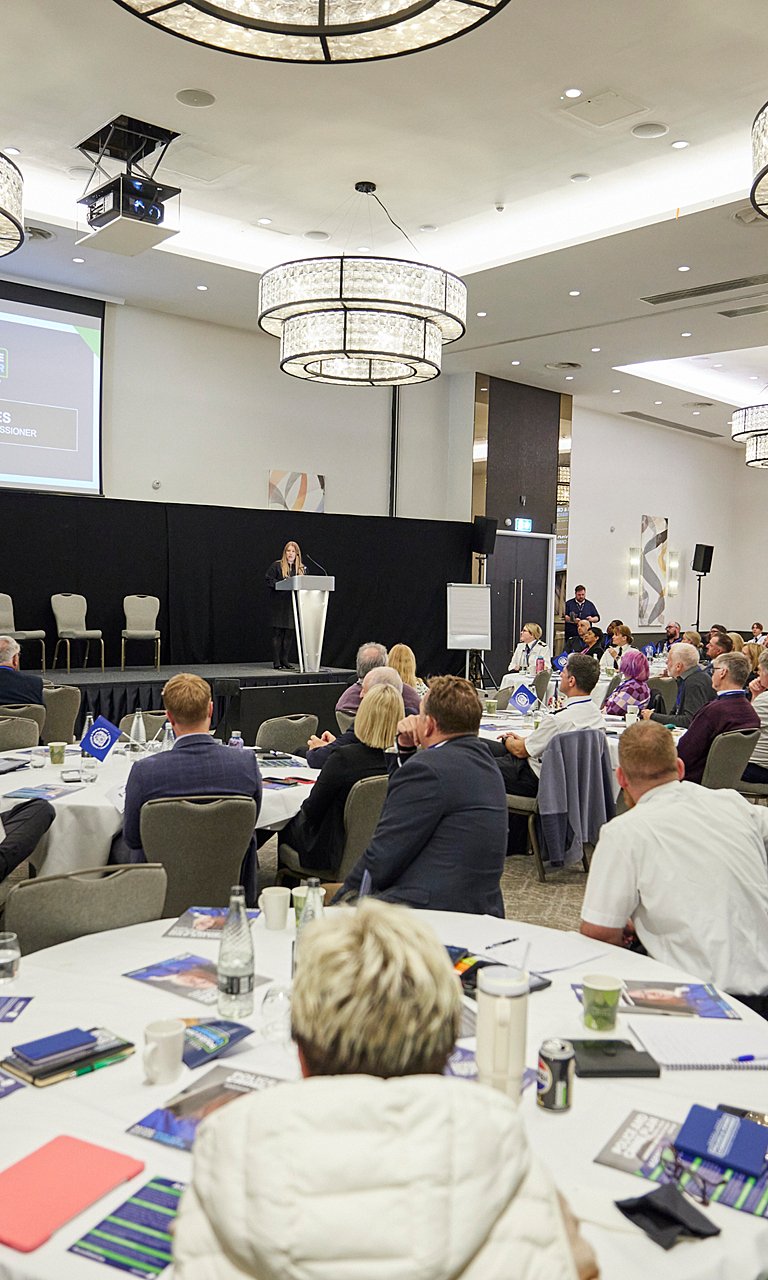
Public
Engagement
Each year I attend a large number of public meetings, such as parish, district and borough council meetings to engage with communities. Crime and safety events are regularly organised through my office to ensure communities are equipped with the help and support they need to protect themselves from crime...
Each year I attend a large number of public meetings, such as parish, district and borough council meetings to engage with communities. Crime and safety events are regularly organised through my office to ensure communities are equipped with the help and support they need to protect themselves from crime. I also hold meetings online to ensure I reach as many people as possible. As a civic leader, it is my honour and duty to represent the people of Hampshire and the Isle of Wight at high profile civic events.
I hold casework surgery appointments both in person and online for people affected by crime and for people seeking advice and support. Through my office, I support people in the police complaints process and help people to navigate the criminal justice system. In 2023, I carried out more than 2,000 pieces of casework both via email and in person. Over 9,000 people have signed up to my monthly newsletter and I have an active social media account which allows me to engage with residents on crime and policing matters. I also focus on working with traditional media to ensure communities are informed on policing and support in their area.
Public Engagement
Each year I attend a large number of public meetings, such as parish, district and borough council meetings to engage with communities. Crime and safety events are regularly organised through my office to ensure communities are equipped with the help and support they need to protect themselves from crime. I also hold meetings online to ensure I reach as many people as possible. As a civic leader, it is my honour and duty to represent the people of Hampshire and the Isle of Wight at high profile civic events.
I hold casework surgery appointments both in person and online for people affected by crime and for people seeking advice and support. Through my office, I support people in the police complaints process and help people to navigate the criminal justice system. In 2023, I carried out more than 2,000 pieces of casework both via email and in person. Over 9,000 people have signed up to my monthly newsletter and I have an active social media account which allows me to engage with residents on crime and policing matters. I also focus on working with traditional media to ensure communities are informed on policing and support in their area.
I will:
- Produce an Annual Report
- Obtain the views of communities about matters concerning policing, and their co-operation with the police in preventing crime and ASB
- Obtain the views of victims of crime about matters concerning policing
- Consult on the policing precept annually
- Hear the voice of children and young people through my Youth Commission
- Engage with community groups to hear their concerns and represent their voice
- Engage with people with lived experiences of the criminal justice system
- Attend community meetings with police, local MPs and Councillors to address local issues.

